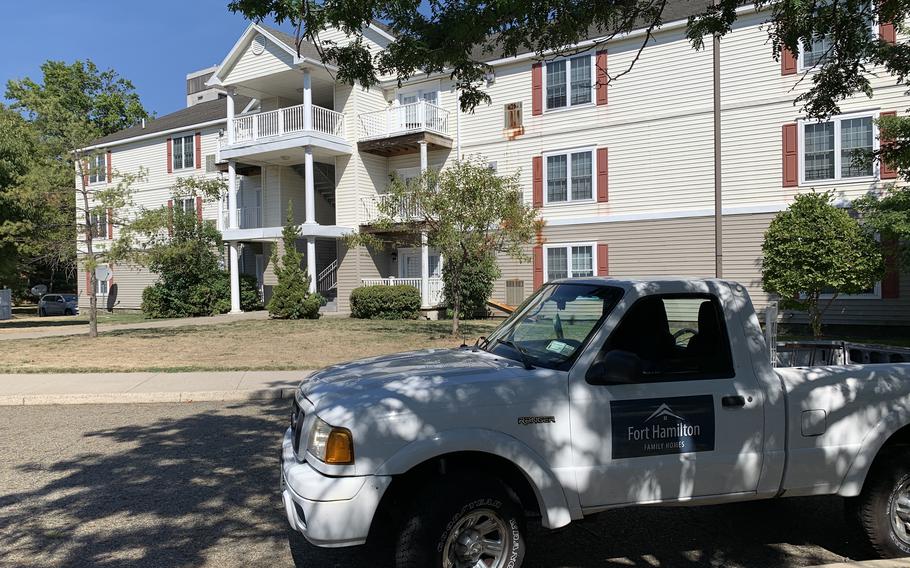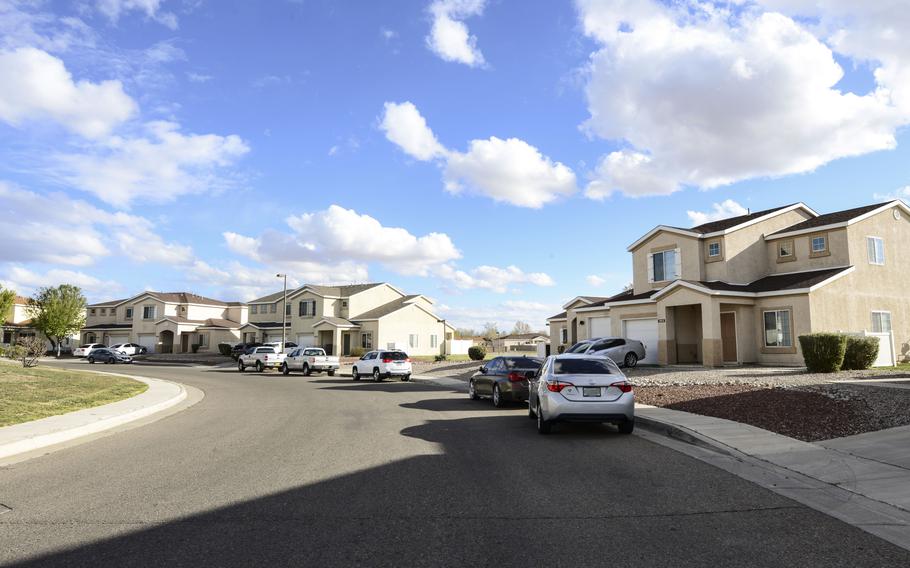
The exterior of privatized military housing at Fort Hamilton, N.Y., being renovated in August 2022. A recent review by the Government Accountability Office called on the Defense Department to provide clear housing inspection standards so that assessments rely less on individual interpretation. (Connie Dillon/U.S. Army)
The Defense Department should issue clear and consistent standards for inspecting privatized military housing as part of a mandate to improve service members’ living conditions, a government watchdog agency says.
A lack of uniform rules for rating a home as passing, conditionally passing or failing a review makes inspections too subjective, according to a Government Accountability Office report released earlier this month.
As a result, some homes with identical problems may be rated differently, and that is sparking confusion and arguments between the military and property management companies, which own and operate about 99% of housing on stateside bases, the GAO said.
It also may lead to inaccurate assessments of property management company performance, which could impact monetary rewards they receive for good service, according to the April 6 report.
For example, the Army only considers failing home inspections as part of how it determines if a landlord should receive a performance incentive fee.
The service doesn’t consider whether to withhold the bonus when homes pass inspections but require repairs or otherwise don’t meet requirements, according to the review, which was conducted from August 2021 through last month.
At one installation, the study found that the pass rate for inspections regularly fell into the mid- to high 90% range but most of those were “pass with conditions,” requiring the landlord to conduct additional maintenance or repairs before residents could move in.

Privatized military family housing at Kirtland Air Force Base in New Mexico in April 2019. A lack of clarity in Pentagon standards for housing inspections is leading to misunderstandings between the military and property management companies, according to a congressional watchdog agency. (Alexandria Craw/U.S. Air Force)
The GAO review stems from congressional reforms in the 2020 National Defense Authorization Act to address poor living conditions for service members and their families. Problems in private companies’ military housing included mold, rodent and insect infestations, and other safety and health issues.
The reforms also targeted DOD oversight of its privatized housing program, which was established in the mid-1990s, according to the report.
Reviewers found that overall, the Pentagon was better managing its privatized housing program and was quickly implementing 24 of 30 GAO recommendations made since March 2018.
The department also had taken steps to adopt several congressionally mandated requirements, such as housing inspections before a move-in, the GAO noted.
However, the DOD did not submit a report to Congress evaluating the shortage of civilian workers needed for oversight functions at military housing offices. That report was due in June 2020.
The GAO outlined 19 recommendations for the services and the Pentagon. In addition to improving standards for housing inspections, the services need to better train housing inspectors, according to the review.
It further urged the services to offer more information about a formal dispute resolution program, such as telling residents how and when they can file a dispute. And housing personnel need more training on how to help residents through the process, the GAO said.
Also, the services should better define the role and responsibilities of resident advocates and communicate to residents about how the advocates can be used.
“By addressing these implementation weaknesses, DOD could enable personnel to more effectively perform their duties, reduce residents’ confusion and frustration, and more fully meet the congressional intent of improving the privatized housing program,” the GAO said.
The DOD concurred with 15 of the recommendations and partially concurred with four others related to the Air Force, according to the report.